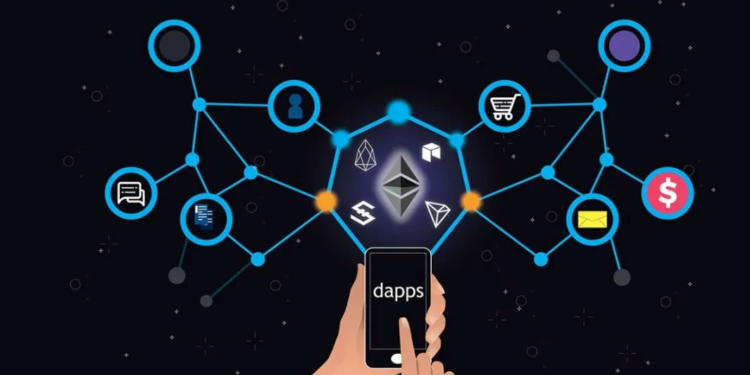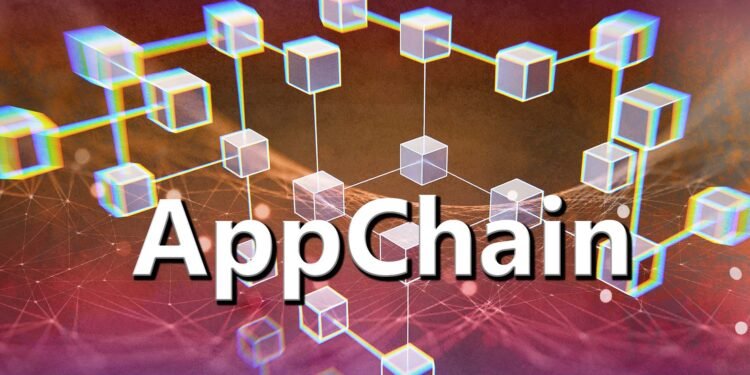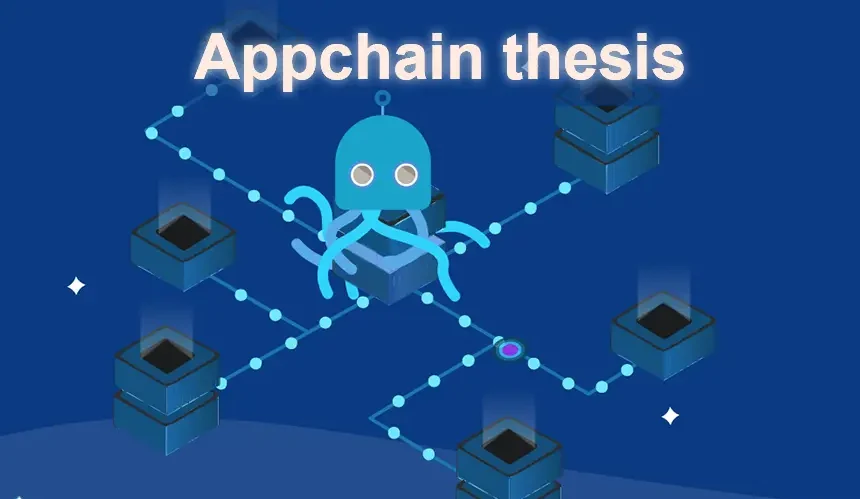Appchains represent a significant breakthrough in the field of blockchain technology, meeting the growing need for customized solutions from a range of businesses. In contrast to traditional blockchains, which aim to support numerous applications, Appchains are carefully designed with a single goal in mind. With this customized strategy, Appchains may maximize their functionality and performance for certain use cases, providing unmatched efficacy and efficiency. Appchains usher in a new era of precision and customization by focusing on the specific needs of each apps, changing the deployment and utilization of decentralized solutions across numerous sectors.
Understanding Blockchain Technology
Appchains and other innovations are built on top of blockchain technology. It functions as a distributed ledger, allowing transactions to be recorded securely and irrevocably via a network of linked computers. Blocks, which hold transactional data in a chronological order; cryptographic hash functions, which guarantee data integrity by creating distinct identifiers for every block; and consensus mechanisms, which help network users agree on the legitimacy of transactions, are the essential elements of a blockchain. These fundamental components allow blockchain technology to provide transparency and trust.
What are Application-Specific Blockchains (Appchains)?
As their name suggests, application-specific blockchains, or Appchains, are blockchains tailored for a particular application or use case. These specialized networks offer solutions that are specifically designed to address the distinct problems or requirements of a given sector or specialty. Appchains, as opposed to general-purpose blockchains like Bitcoin or Ethereum, focus on optimizing speed, scalability, and effectiveness for a specific application. Appchains enable developers to design more effective and efficient decentralized solutions by optimizing resources and functionality for a particular purpose, promoting innovation and acceptance across a range of sectors.
Advantages of Appchains
Appchains have a number of noteworthy benefits, the most important of which being scalability. Appchains are able to increase scalability and throughput by streamlining operations and enhancing performance by customizing their architecture to fit a particular application or use case. With this targeted strategy, resources can be allocated more effectively and operations can be reduced, allowing Appchains to handle higher transaction volumes without sacrificing speed. In addition, Appchains offer more customization and flexibility than typical blockchains, enabling developers to exactly customize solutions to the specific needs of the sector or application for which they are meant. This adaptability encourages creativity and quickens the adoption of decentralized solutions in a variety of industries.
Use Cases of Appchains
Appchains have become highly adaptable and have uses in a variety of industries, including supply chain management, gaming, and decentralized finance (DeFi). Appchains enable the development of decentralized exchanges, lending platforms, and other financial apps tailored to the individual requirements of customers within the DeFi industry. These customized blockchains enable programmers to create reliable, safe platforms that facilitate efficient, transparent, and transparent financial transactions. By enabling the development of decentralized gaming platforms, digital asset ownership, and provably fair gaming environments, Appchains transform gameplay experiences in the gaming industry.
How Appchains Work
From a technical standpoint, appchains operate similarly to standard blockchains, but with a focus on performance and efficiency optimization for specific applications. Appchains use consensus techniques like Proof of Authority (PoA) and Proof of Stake (PoS) to validate transactions and uphold network security. Without the need for central authorities, these procedures guarantee that network participants agree on the legitimacy of transactions. Appchains can also efficiently scale to suit the needs of their unique use cases while preserving a high degree of security and decentralization by optimizing their governance and design structures.
Examples of Appchains
Prominent blockchain platforms are excellent illustrations of Appchains, demonstrating their adaptability and suitability for a wide range of industries. Ethereum is a prominent Appchain that provides strong support for smart contracts and decentralized applications (dApps). It is a desirable choice for developers looking to use a specific blockchain for their projects because of its programmability and versatility. In a similar vein, Polkadot’s ground-breaking interoperability protocol facilitates the smooth merging of several blockchains, encouraging a thriving network of connected apps. Avalanche is also a good fit for enterprise solutions and decentralized finance (DeFi) apps because to its high throughput and low latency architecture.,
Challenges and Limitations
Appchains have many advantages, but there are significant obstacles and restrictions that prevent them from being widely used. Security is still the biggest worry since customized blockchains could be attacked because of their particular design. When combining Appchains with other blockchain networks or current systems, interoperability problems occur that prevent smooth communication and data sharing. Moreover, regulatory limitations pose challenges for Appchains since ambiguity about compliance standards may turn off developers and consumers. It is essential to solve these issues if Appchains are to continue to grow and be accepted.
Future Outlook of Appchains
Appchains have a bright future ahead of them thanks to ongoing breakthroughs and developments in the blockchain industry. With more sectors realizing the advantages of customized blockchain solutions, Appchain demand is predicted to skyrocket. These specialized blockchains, which provide effective, scalable, and adaptable solutions to particular needs and issues, have the potential to completely transform a number of industries. With continuous technological advancements and expanding industry usage, appchains are poised to become essential elements of the decentralized ecosystem.
Conclusion
In conclusion, Appchains represent a substantial advancement in blockchain technology, offering customized solutions to meet the needs of many sectors and applications. Appchains, with their emphasis on scalability, flexibility, and personalization, provide a means of significant innovation and growth in the decentralized ecosystem. Appchains are in high demand as businesses look more and more for customized blockchain solutions to solve certain problems. Appchains are positioned to deliver dramatic changes
